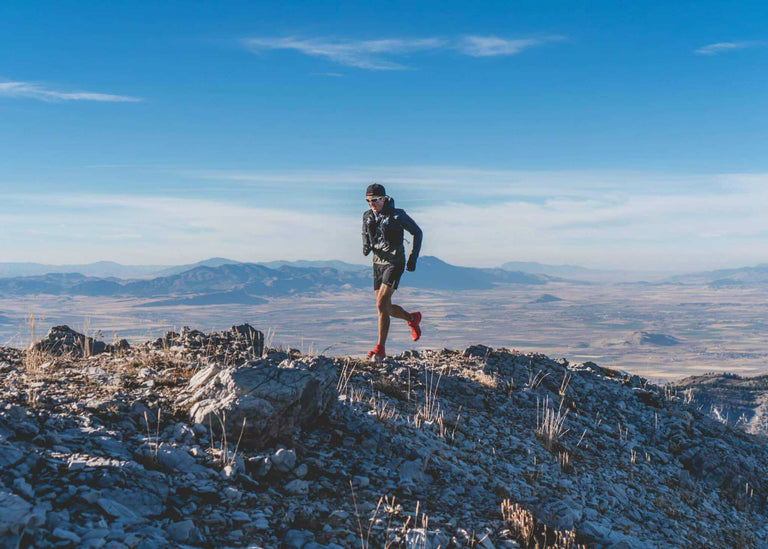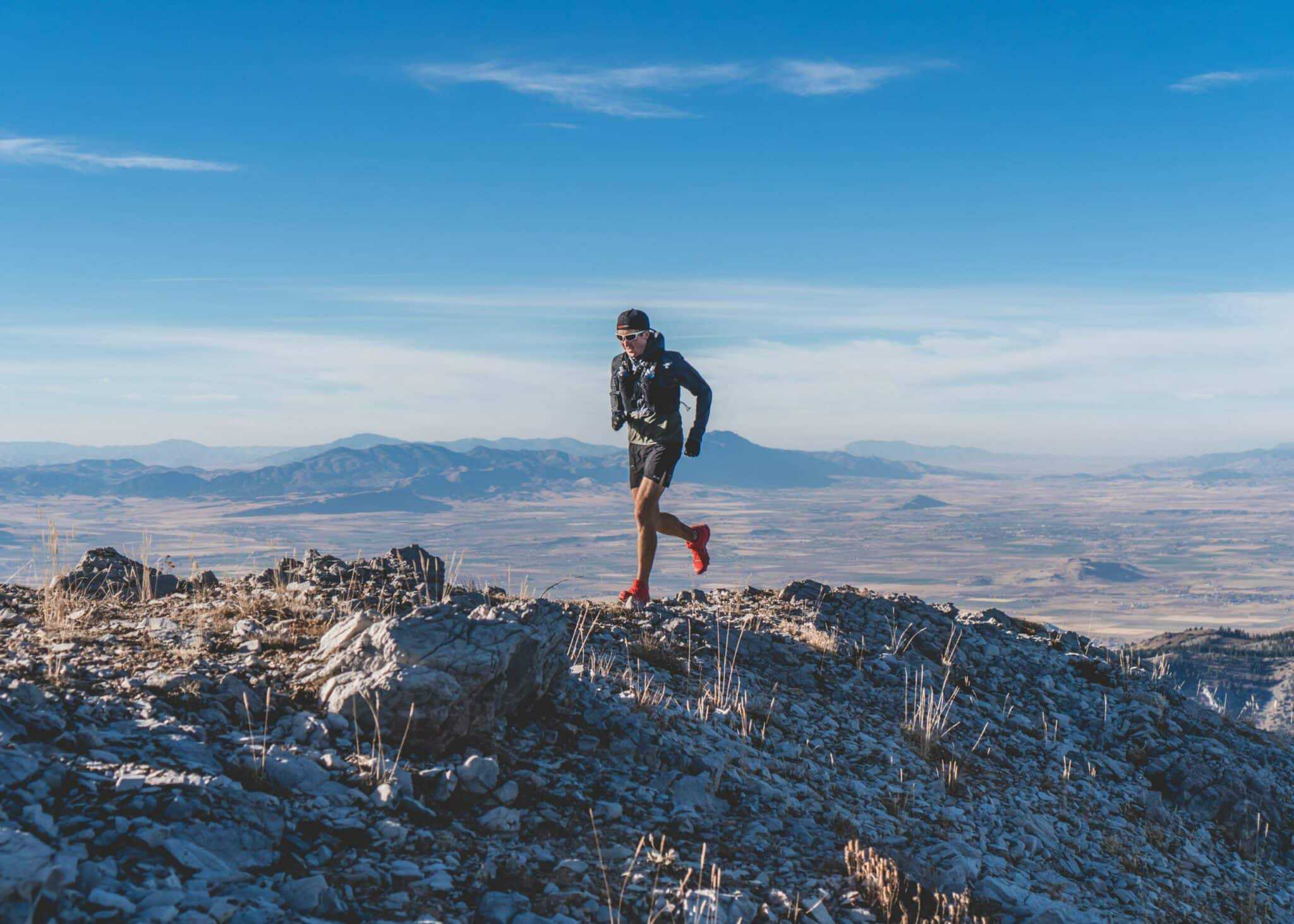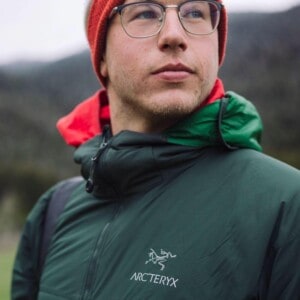The Colorado Trail is one of America’s premier long-distance trails, open to backpackers, thru-hikers, mountain bikers and horse packers. The 485-mile-long path weaves its way from Denver to Durango, while climbing nearly 90,000 feet through six wilderness areas, eight mountain ranges and countless high-mountain lakes and summits. For some, completing the Colorado Trail in any form is a dream come true.
But for some of the most elite athletes, pushing through as quickly as possible is the ultimate goal. In the beginning of this summer, ultrarunner Courtney Dauwalter attempted to snag the Colorado Trail’s Fastest Known Time (FKT). But after 300 miles, Courtney ran into serious breathing issues, landing her in the ER.
Inspired by her effort, Courtney’s friend and teammate – Gnarly athlete and ultrarunner Mike McKnight – went for his own FKT attempt on the Colorado Trail. On September 21, Mike snagged the West to East (Collegiate East) “Supported FKT” title, completing the entire trail in 7 days, 13 hours, 16 minutes and 15 seconds.
We recently caught up with Mike to talk about his running background, Colorado Trail FKT, his training and nutrition. Continue reading to check out the full interview.

How long have you been taking running seriously?
I started running to get in shape in 2011. But, in early 2012, I broke my back. Though, I was already fast enough and trained hard enough that I could walk onto my college track team. When I broke my back, I was told I’d have to take a year off of running. After surgery, I lost my job and didn’t complete my college classes. My recovery was fortunately very fast, and I started running just three weeks after back surgery. And since I didn’t have a job or school, I ran a couple of hours every day. In 2013, I ran my first ultra.
Since 2013 you’ve run a lot of ultras. How do you maintain physical and mental longevity in a sport that’s so demanding?
Nutrition has greatly helped my longevity. I know a lot of people out there don’t agree with my nutrition style – which is low-carb, high-fat – but when I first started ultra running I followed Karl Meltzer. A magazine interviewed him about his nutrition and he answered that he eats whatever he wants – pizza, beer, it didn’t matter. So that’s what I started doing.
But I always had gut issues, and during races I was puking a lot and would stop eating to avoid puking. But then my energy dipped. So I was in a cycle where I wasn’t feeling good digestively and had no energy. I also noticed that I was injured a lot.

Then in early 2017 I started doing the low-carb, high-fat diet. My recovery time became a lot quicker. Low-carb, high-fat has been a game-changer for me. But it’s not for everyone.
Another thing that has helped greatly with my longevity is strength training. I used to be so against this. If I could spend 40 minutes in a gym, my philosophy was that I’d rather just be running. But once I started to strength train and focused on my glutes, hips, quads and range of motion, my IT-band and hip issues began to fade.
I also focus a lot on stretching and rolling out. I try to do this every night for about 10 to 15 minutes, and I also have a muscle blaster I use as often as I can.
Overall, just actually paying attention to what I was eating and how I treated my body has helped a lot. I stay away from junk food and consume protein-rich foods, as well as focus on self-care, to speed up my recovery.
Okay, let’s talk about the FKT. How did you prep for this thing?
I didn’t decide to attempt the Colorado Trail until like four weeks beforehand. A week or so after Courtney tried it, I decided I should give it a go, too. I’ve always thought that it would be cool to go for the Appalachian Trail (AT) FKT, but I recognized that would be impossible to do with a job and traveling. But in April I lost my job due to COVID, so the CO Trail FKT attempt was just convenient at the time.
I honestly didn’t even know what the CO Trail was until I started following Courtney’s adventure. Me and Courtney both run for Salomon. She had to go to the ER because she had breathing issues due to bronchitis – her O2 levels were down to 70. Normally, if someone’s O2 levels are below 90, that person should see a doctor. Courtney is a determined runner, so it was a pretty serious reason which led her to pull the plug.
I texted her a few days after she was in the hospital to pick her brain, and she told me I should go for it and that the FKT is out there. So I listened.
What was your overall goal for the attempt?
My ultimate goal was to beat the previous record of 8 days, 7 hours. So 8 days, 6 hours was all I needed to do. My “stretch goal” was to do it in under 7 days.
Tell us about your nutrition during the FKT.
On the first day I had issues with my food between crew stops. Eating just didn’t sound pleasant to me; I had a big tote of go-to food for other races and none of it sounded appetizing.
Maybe it was the altitude, I’m not entirely sure. So I just started consuming a ton of calories every time I saw my crew and relied on that intake until the next stop.
My brother is the kitchen manager for a Brazillian steakhouse, so he hooked me up with about 20 pounds of pre-cooked meat, like New York steak and brisket. My crew was eating it too because there was too much for me!
Throughout the run I basically just had a ton of meat and Gnarly protein shakes. To make them calorie-dense, my shakes would be half whipping cream, which made them about 1,200 to 1,500 calories. I had Gnarly at every stop and roughly consumed about 3,000 calories each time I saw my crew.
What was your recovery like post-run?
The fatigue has been pretty unreal. Normally I’m never tired and my alarm clock rarely wakes me up. But almost every day since I’ve finished the Colorado Trail, my alarm clock has woken me up and I’ve been passing out due to mental and physical exhaustion.
The mental adjustment has been difficult, but I have family to occupy myself with, so that makes it easier. I also found out that around mile 400 I strained my quad. So, I rested a bit after the run, and started running again after about two weeks. I ran just two or three days that week. But now I’m finally running every day. That took about a month to get to that point.
How did you battle mental demons during the FKT? How did you keep the psych high?

Oh man, there were a few low points. At the first aid station – around mile 20 – my crew discovered that my 12 pairs of shoes were stolen out of the car. I was just about to enter a big climb into the San Juans, and a thru-hiker informed me that it was wet and snowy. So I wanted to put my waterproof shoes on for that section. A couple minutes after looking for my bag, my crew let me know it was nowhere to be found. So I threw my original shoes back on and took off. Then my crew went to town and bought me four new pairs of shoes from Durango Running Co.
Salomon makes shoes with premium materials that last a while, but they take time to break in. The shoes that were stolen were already broken in and ready to go. So for the rest of the trail I had to completely break in new shoes. Having Ben Light as my crew manager helped a lot. Ben is calm and collected, so his energy helped me keep my focus.
Not being able to eat as much as I’m used to was a hurdle, too. So was the altitude. Because I decided to go for the FKT just four weeks beforehand, I didn’t do as much prep as I should have.
I didn’t even realize the lowest point of the Colorado Trail is at 9,000 feet, with most of the elevation being at 10,000 feet. That was rough.
But the biggest struggle was sleep deprivation. In total, I slept less than an hour a night. Most were quick two to three minute naps on the trail. I tried sleeping in a tent on top of my truck for 45 minutes a night, but a lot of the time I couldn’t sleep. I resorted to running until I fell asleep. I’d tell my pacer I needed a nap, then just popped back up.

After day four, that was hard. That was all new territory for me. Four nights was my max before this, so handling sleep deprivation for the remaining days was really hard for me.
Do you have any future plans already in the works?
My perception of my usual 200-mile events has changed a lot. After running for seven days and six nights, two nights now seems like no problem. It seems mentally easier now to do a 200-mile race. So future 200-mile attempts will be interesting for me.
And I also want to do the AT still. But now I have a different perspective on how to approach it. It seems like 500 miles is getting close to the max distance of pushing it without sleep. So anything after 500 miles, I’ll really have to start strategizing good sleep stations. I want to try these further distances, like the AT, which includes new logistical challenges.
Do you offer coaching services for other athletes who are looking to get after it like you do?
I’ve been coaching for a year now and offer a few different services:

- A 30 minute phone conversation about questions for strength training, longevity, the keto diet, etc.
- A more in-depth, one hour skype call.
- A four week running and strength training plan (which can be renewed every four weeks), which includes constant communication and advice on running.
Since this is all online, I’m free to help people regardless of their location.
Follow along on Mike’s next adventures through his Instagram: @thelowcarbrunner or schedule a consultation with Mike through his website: https://lowcarb-runner.com/
A film will also be released soon, documenting Mike’s Colorado Trail FKT. Check out the trailer below (filmed by Matt Vanhorn).



